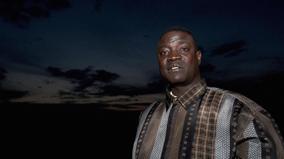The Fight for Francophone Rights - Part Two - Our Rights, Our Fights
In 1982, when section 23 of the Canadian Charter of Rights and Freedoms was adopted, the Canadian Constitution gave linguistic minorities the right to be educated in their own language. Yet, as francophone minorities outside Quebec soon came to realize, infrastructures needed for an education in French were lacking or totally nonexistent. Groups of parents decided to launch legal battles to force provincial governments to recognize and respect their rights. The three-part documentary series The Fight For Francophone Rights looks at six of these battles. Through interviews with the players involved, director Anne-Marie Rocher spotlights the issues that have pushed …
to your list

In 1982, when section 23 of the Canadian Charter of Rights and Freedoms was adopted, the Canadian Constitution gave linguistic minorities the right to be educated in their own language. Yet, as francophone minorities outside Quebec soon came to realize, infrastructures needed for an education in French were lacking or totally nonexistent.
Groups of parents decided to launch legal battles to force provincial governments to recognize and respect their rights. The three-part documentary series The Fight For Francophone Rights looks at six of these battles. Through interviews with the players involved, director Anne-Marie Rocher spotlights the issues that have pushed francophones to commit to a long fight that many considered a lost cause. If the infrastructures needed to transmit culture, language and history are lacking, inadequate or nonexistent, what does the future hold for francophone minorities?
-
participantWilfred DenisPierre FoucherHervé LepageRoger LepageGabrielle LepageJean-Michel TremblayAndré BourcierJean-François BlouinChristian BrideauMarc ChampagneDaniel GirouardMark MucklerLara St-OngeNicolas Nadon
-
writerAnne-Marie Rocher
-
directorAnne-Marie Rocher
-
consultantMichel BastarachePierre Foucher
-
director of photographyFrançois Vincelette
-
soundMélanie Gauthier
-
editorPetra Valier
-
opening sequenceCosta Leclerc Design Inc.
-
original musicJean Derome
-
producerAnne-Marie RocherDominic Desjardins
-
writing consultantSolange Lapierre
-
research consultantSolange Lapierre
-
visual researchClaire BourbonnaisLouise Philippe
-
assistant cameraMartin Landry
-
digital transferMartin Landry
-
production managerDoris Lapierre
-
assistant editorAi Rei Dooh-TousignantAmanda TerflothAndrea Ziedenberg
-
sound editorDaniel Toussaint
-
foley artistLise Wedlock
-
foley recordistGeoffrey Mitchell
-
musicianJean DeromeGuido Del FabbroLévy BourbonnaisDany NicolasNormand GuilbeaultPierre Tanguay
-
music recordingRobert Langlois
-
music mixingRobert Langlois
-
narratorJulie Lemieux
-
narration writerSophie PercevalAnne-Marie Rocher
-
online editorSerge Verreault
-
graphic designCynthia Ouellet
-
titlesCynthia Ouellet
-
mixerSerge Boivin
-
subtitlesVision Globale
-
translationJoshua Beitel
-
archive digitizationMélanie Bouchard
-
associate producerZabi Yaqeen
-
legal advisorZabi YaqeenDominique Aubry
-
line productionRenée de Sousa
-
assistant accountantMarie-Rose Monceaux
-
executive producerAnne-Marie RocherDominic Desjardins
-
marketing managerFrançois Jacques
-
administratorGeneviève Duguay
-
studio managerAlexandrine Torres de Figueiredo
-
technical coordinatorDaniel Claveau
As a backdrop to the events shown in this segment, relations between the English-speaking and French-speaking communities seemed tense. How would you describe the situation between the two communities where you live, and what questions might be sensitive for some people?


















